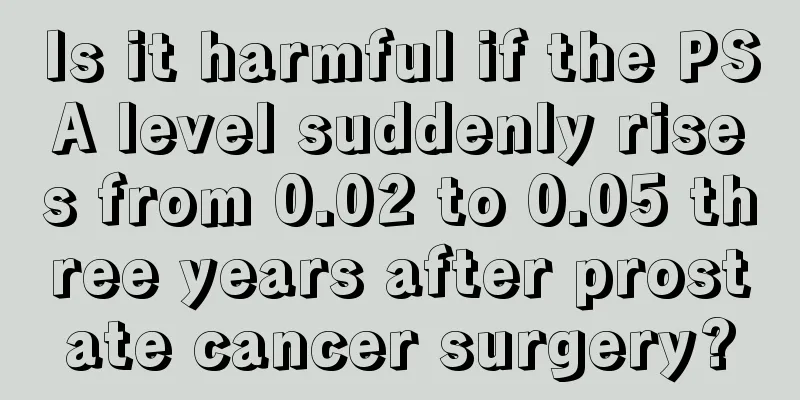3 types of cancer are caused by inflammation! What is the pathogenesis?

|
The role of chronic inflammation in the development of cancer cannot be underestimated. It is understood that up to one-fifth of cancers are caused or affected by inflammation. Inflammation and cancer seem to be two completely different diseases, but in fact they are closely related. Which inflammations are related to cancer, and what can be done to prevent inflammation from turning into cancer? How inflammation drives cancer The concept of inflammation is sometimes difficult to understand because it seems contradictory. On the one hand, inflammation is a healthy process that is essential to the body's ability to heal itself. When you have an infection or injury, the immune system releases white blood cells and chemicals to fight off the infection or repair damaged tissue. But when inflammation persists, or when you don't have an infection or injury due to arthritis and other autoimmune diseases, the immune system can trigger an inflammatory response. Chronic inflammation can damage DNA, and the inflammatory process produces molecules called cytokines, which stimulate the growth of blood vessels to bring oxygen and nutrients to the tumor. The process can also produce free radicals that further damage DNA. These side effects of inflammation may help maintain and promote the growth of cancer. These chronic inflammations can lead to cancer There are many common cancers in our lives that are highly correlated with inflammation, and there are several types of cancer that are more common. Let’s take a look at them. 1. Colitis → Colorectal cancer Long-term chronic inflammatory colitis can lead to colorectal cancer. When ulcerative colitis is not cured for a long time, inflammatory factors will stimulate the colorectal cells to become cancerous, thereby inducing colorectal cancer. 2 Gastric ulcer → gastric cancer Infection with Helicobacter pylori is a common cause of gastric cancer. Although there are other factors that cause gastric cancer, clinically, gastric cancer patients usually have long-term gastric ulcers, gastric perforations, etc., which are all cancers caused by inflammation caused by pathogen infection. 3Hepatitis B → Liver Cancer Hepatitis is also caused by infection with pathogens, and infection with pathogens can cause the liver to be in an inflammatory state for a long time. For example, hepatitis B is caused by infection with the hepatitis B virus, which is one of the common causes of liver cancer. There are many other types of cancer that are closely related to inflammation, but the occurrence of cancer is generally related to multiple factors. Therefore, the occurrence of cancer cannot be blamed solely on inflammation. Environmental factors are also another important factor causing cancer. For the general public, in addition to preventing chronic inflammation, we still need to prevent cancer from several other aspects, such as exercise and diet. However, these are not as important as regular physical examinations. Only through regular examinations can we detect inflammation and take certain measures to effectively suppress inflammation and prevent it from developing into a chronic disease. |
<<: If early stage cancer is removed surgically, will it not recur?
>>: Don't randomly remove moles on your body. Repeated removal of moles may lead to cancer!
Recommend
How to prevent skin cancer infection
In daily life, improperly wearing close-fitting c...
Is anthocyanin effective in removing radiation?
As the Internet continues to penetrate into peopl...
What are the skin symptoms of sepsis?
Early skin symptoms of sepsis may cause red papul...
My scalp is so itchy in the middle of the night
Nowadays, many people always feel that their scal...
Can I use aloe vera gel after removing a mole
When we walk on the street, we will find that bea...
What are the fastest and best ways to get rid of acne
Adolescence is probably the time when acne occurs...
I feel like there is something foreign in my throat when I smoke
Many people like to smoke in life, but smoking ha...
How to drink beer without bloating, what are the tips
Beer may be a favorite alcoholic beverage for man...
What's wrong with my hands being so shaky
Hand tremors are a problem that many patients hav...
CLS biological immunotherapy opens a new era in the treatment of uterine tumors
Eliminating uterine tumors without removing the u...
Can purpura nephritis be cured? How to achieve good treatment effect?
Purpura nephritis is damage to the kidneys caused...
What causes ringworm?
I believe many people are familiar with diseases....
The fastest way to make your face sweat_How to make your face sweat
Proper waste elimination is beneficial to the bod...
How to stir-fry pepper and salt
Pepper salt is different from the seasonings we e...
Is glacial acetic acid poisonous?
People may not have heard of glacial acetic acid ...









